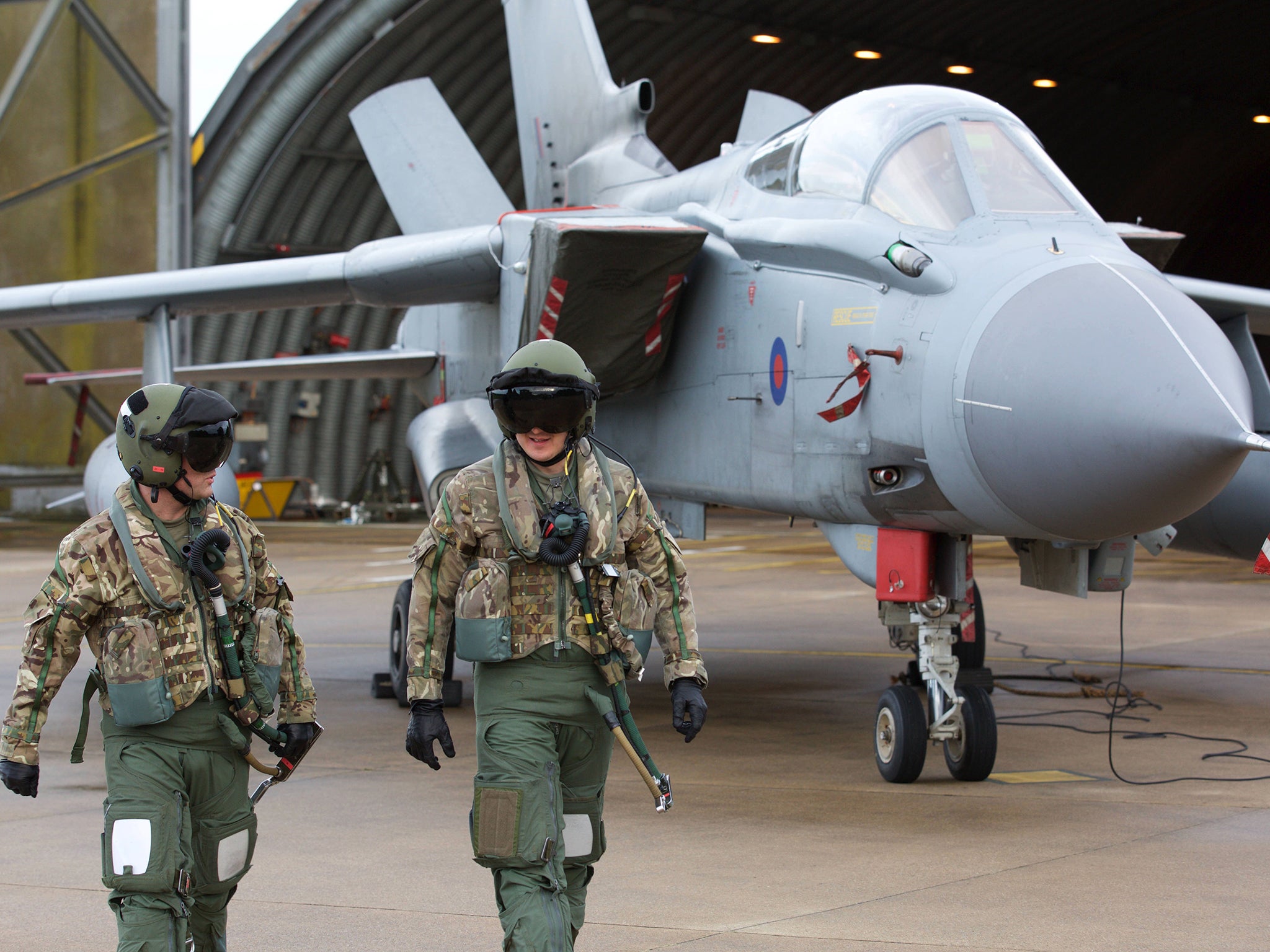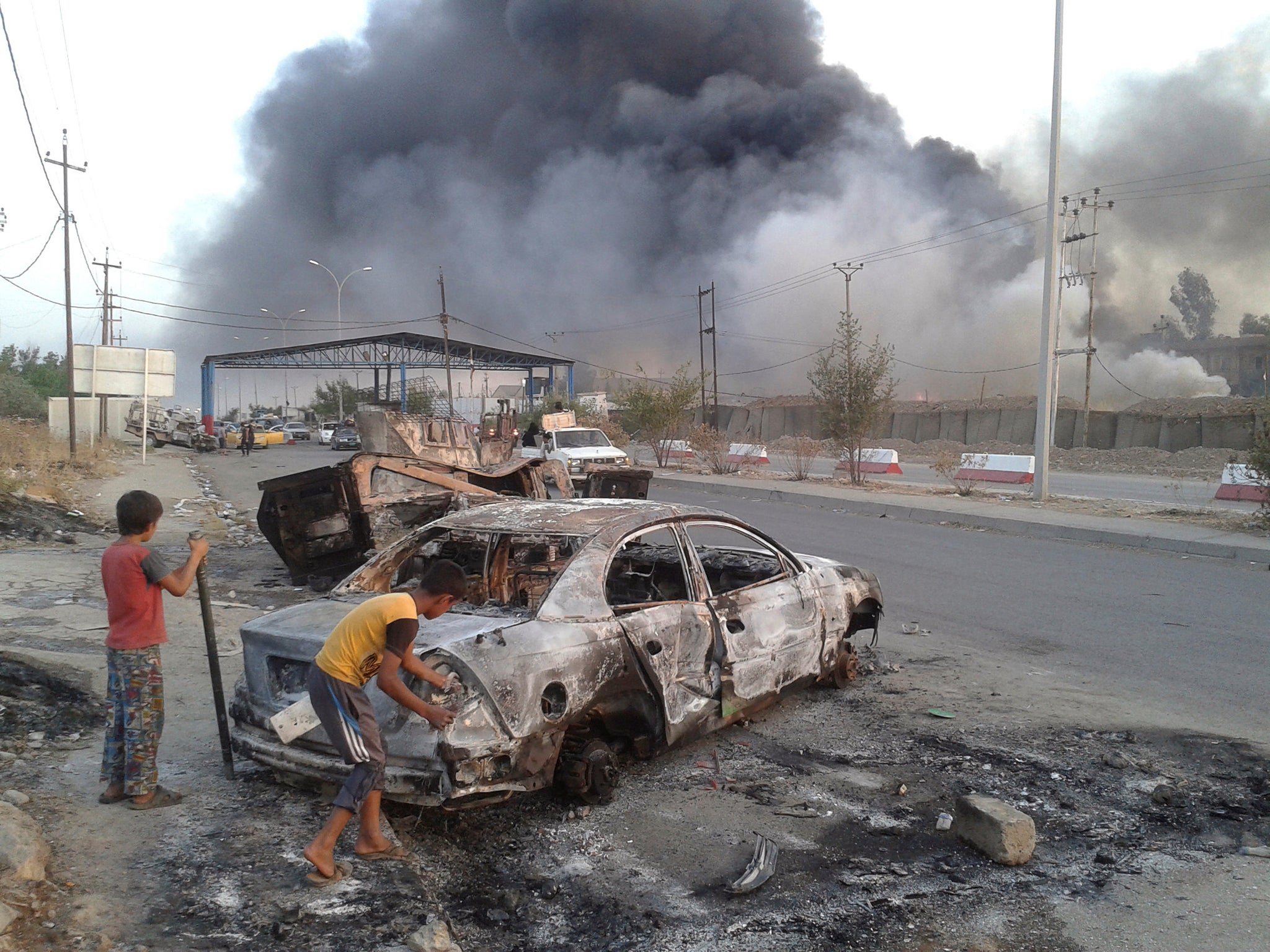Isis militants attempting to shoot down British jets in Iraq and Syria as coalition pounds group ahead of major advance
RAF strikes are increasing in intensity ahead of assult on Isis stronghold of Mosul

Your support helps us to tell the story
From reproductive rights to climate change to Big Tech, The Independent is on the ground when the story is developing. Whether it's investigating the financials of Elon Musk's pro-Trump PAC or producing our latest documentary, 'The A Word', which shines a light on the American women fighting for reproductive rights, we know how important it is to parse out the facts from the messaging.
At such a critical moment in US history, we need reporters on the ground. Your donation allows us to keep sending journalists to speak to both sides of the story.
The Independent is trusted by Americans across the entire political spectrum. And unlike many other quality news outlets, we choose not to lock Americans out of our reporting and analysis with paywalls. We believe quality journalism should be available to everyone, paid for by those who can afford it.
Your support makes all the difference.Isis militants have attempted to shoot down RAF planes with surface-to-air missiles as British jets pound the group’s positions ahead of a crucial advance on Mosul.
Jihadists have recently claimed responsibility for downing several aircraft, including a Syrian fighter jet and an American drone, but their attempts against British aircraft have so far been unsuccessful.
Lieutenant General Mark Carleton-Smith, the deputy chief of defence staff, said superior defensive equipment was being deployed by the US-led coalition in Iraq and Syria.
“We have always made the operational assumption that the Daesh [Isis] inventory might, at some juncture, include surface-to-air missiles,” he told reporters in London.
“There have been reports of engagements – several are of UK aircraft – but to no material effect as a result of the defensive aids [systems] they are carrying, and the tactics the coalition employs. They detect the missile as it is launched.”
It was the first public acknowledgement of the risk posed to pilots flying in the continuing anti-Isis air campaign, with militants believed to have being launching sporadic attacks against the RAF for the past year.
At the start of Britain’s involvement, Isis was believed to possess only shoulder-launched missiles of the type used by insurgents during the Iraq war.
But during the group’s advance across swathes of Iraq and Syria in 2014, it gained access to sophisticated weaponry in government stockpiles, and has possibly bought or been supplied with increased firepower by backers.
Scud missile launchers, Manpads, SA-6 Gainfuls and FIM-92 Stingers are among the weapons believed to have fallen into extremist hands, as well as anti-aircraft guns.

Britain is currently taking part in coordinated air operations against Isis across Syria and in northern Iraq, where the Defence Secretary said government forces are “on the cusp” of the group’s last major stronghold.
Sir Michael Fallon has recently returned from a three-day visit to Iraq, where he met senior government figures in Baghdad, Irbil.
He said the operation to take the city of Mosul would begin “in the next few weeks”, with British planes so far hitting more than 100 targets in and around the city as part of a total of 1,000 strikes in Iraq and Syria.
Two years after the RAF began military operations against Isis, Sir Michael said: “The RAF is now operating at the highest tempo in a single theatre for over 25 years.
"There is no doubt Daesh is facing defeat. We are on the cusp of liberating the last major city in Iraq – Mosul.
"Having spoken to the commanders of the troops involved, their self-belief and determination is very clear.
"Though Mosul is a large and complex city, it will fall – and will fall soon. I expect the operation for its encirclement to begin in the next few weeks."
He acknowledged that “resistance” would continue after the fall of the city, but called Isis a “failing organisation” and predicted militants would be driven out of Iraqi strongholds in a matter of months.
Sir Michael called the struggle in Syria “more complicated”, but insisted that significant progress had been made.
Air strikes on Iraq have increased in intensity, with British jets and drones flying daily missions between 14 September and Thursday.
One Typhoon strike last week hit an Isis training camp just inside Iraq on its border with Syria, killing up to 50 fighters, and later destroyed weapons stockpiles and rocket launchers north of Ramadi.
Other recent targets include the militants in Sharqat, Qayyarah and Mosul, including a cave used as a hideout by militants.
“Daesh is falling back and not making any advances, and air support has been a strong enabler of that,” an anonymous Typhoon pilot told Associated Press.
“I can't think of anything better than helping someone trying to save their country.”
Lt Gen Carleton-Smith said coalition strikes were also exerting pressure on Isis funding and infrastructure, destroying “close to a billion dollars” of the group’s illegal cash stockpile.
“We are disrupting Daesh command and control with targeted strikes that are restricting their freedom of movement and their logistic resupply,” he said.
Coalition defence ministers will meet next month to discuss how to deal with the estimated 8,000 foreign nationals fighting with Isis – including around 400 British citizens – some of whom are expected to try to return to Europe.
Additional reporting by agencies
Join our commenting forum
Join thought-provoking conversations, follow other Independent readers and see their replies
0Comments